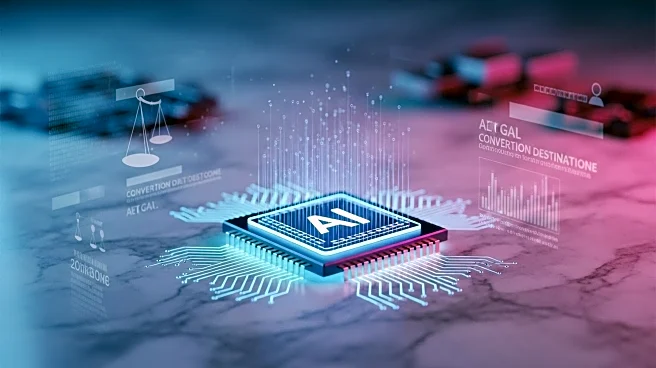What's Happening?
The legal tech industry is currently engaged in debates over the definition of 'agentic AI,' with discussions centered around whether AI systems should operate independently or require human oversight. Hitesh Talwar, head of research and development at Factor, argues that the focus should shift from definitions to the practical outcomes AI can deliver. He emphasizes that trust and reliability are the main barriers to AI adoption in legal work, rather than capability. AI systems are already capable of reviewing contracts and compressing work timelines, but their adoption hinges on the ability to verify outputs quickly and confidently.
Why It's Important?
The debate over agentic AI's definition highlights a critical issue in the legal industry: the need for reliable and verifiable AI solutions. As AI technology becomes more integrated into legal workflows, the emphasis must be on producing consistent and trustworthy results. This shift is essential for legal professionals who rely on AI to enhance efficiency, reduce risks, and improve compliance. By focusing on outcomes rather than definitions, the legal industry can better leverage AI to streamline processes and deliver tangible benefits.
Beyond the Headlines
The discussion around agentic AI also touches on broader themes of autonomy versus reliability. While full autonomy in AI systems is appealing, it often comes at the cost of reliability, especially in high-stakes legal work. The integration of AI with human oversight ensures that decisions are made accurately and responsibly. This approach not only enhances trust in AI systems but also aligns with the ethical and practical demands of legal work. As AI continues to evolve, the legal industry must balance innovation with the need for accountability and transparency.









